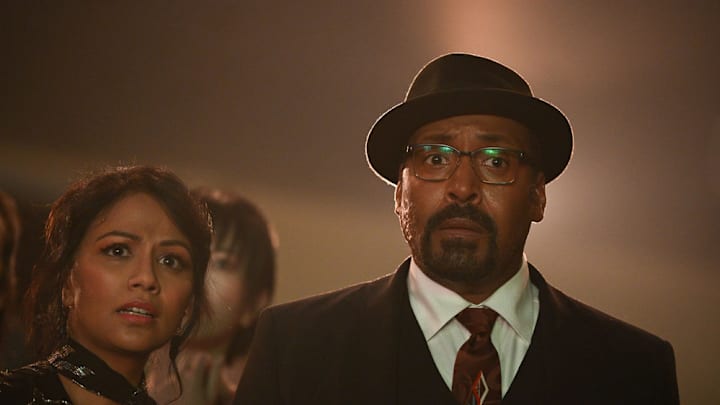Alec performs an experiment on his class in The Irrational season 2, episode 14. It’s all about the case, though.
Caution: This post contains SPOILERS from The Irrational season 2, episode 14
Going into the episode, we knew to expect something that involved deepfakes. These are so very real that it makes sense for a TV show to use them. We’re all at risk of them, but they usually affect people in a position of authority.
In this case, it all involved an attorney general, who was the product of a deepfake video. It turned out that there may have been something more sinister going on.
Who was behind the deepfake in The Irrational season 2, episode 14?
It didn’t take too long to get to the bottom of the deepfake and who created it. It was daughter of the attorney general who did it all.
All Olivia wanted to do was to stop her dad from focusing on his senate career. She wanted him to be the guy she had known growing up. In this case, her actions were that of a child who didn’t understand the full consequences of them. Once she realized, she knew what she did was wrong. It was a huge learning experience for her.
I think we often look at teenagers are adults already. We expect them to know right from wrong, but in this case, Olivia’s wrong actions were for right reasons. I just always think back to the line in Charmed that reminds us “wrong things done for the right reasons are still the wrong things.” But teenagers need to learn lessons, and they need to have the backing of others to be able to learn them. As long as teens learn and work on doing better, that’s a good thing.
In a way, Olivia’s deepfake wouldn’t have been too bad had she not left the source material attached. And that is where things spiraled out of control. None of this was her intention, but she had to own up to some of the consequences.
Understanding the Milgram Experiment
The title of the episode had little to do with the deepfake, though. It was to do with behavioral science and how we are willing to act when a position of authority tells us to do something. We see this everywhere in the world.
The name of the experiment comes from Stanley Milgram, a Yale psychology who conducted an experiment between 1961 and 1962. He wanted to find out if people would actually do bad things because authority figures told them to. And it turns out people will.
We all want to say that “well, if I was in 1940s Germany, I would have stood up to the Nazis,” but is that really the case? A lot more people are like John Smith from The Man in the High Castle than they would like to believe. That’s something Alec was also able to prove through his own experiment with his students.
A revolution isn’t the worst enemy of authoritarianism. It’s all about community. If people start to gather together and choose to fight back or stand up against someone in charge, there is the risk of a regime falling over.
We saw the Milgram Experiment in action, in a way. Rose blindly followed her boss’s orders. She believed that she owed so much to him that she had to follow him without questioning his orders. Alec could see through it, though. I still don’t see what he did as an experiment, but both Rose and Marisa did. I do now see that this is probably why Marisa and Alec’s marriage didn’t work out. However, Rose may be able to accept Alec’s love language before Marisa could.
What I did like about the Alec-Rose conflict, though, was showing that communication is key at all times. We see that relationships are stronger when people talk to each other. I think anyone who has been in either an unhealthy or a healthy relationship—friend or lover—will be able to agree with that.
So, it brings us to the end of the episode. Because to be honest, the case was a little convoluted and sometimes confusing to follow. It wasn’t the most interesting case, with the experiment and the behavioral science being the bets parts of the whole episode.
The end of the episode was all about Kylie, who has been ignoring all of Angelica’s calls. This is the woman who ghosted her after finding out that she works for the FBI. I can’t blame her. I would too! But it makes me wonder what Angelica wants. What is Kylie going to find herself in the middle of, and will it put her career at risk?
The Irrational airs Tuesdays at 10/9c on NBC. Catch up the following day on Peacock.
Stay up to date with the latest The Irrational news and more with Precinct TV.
